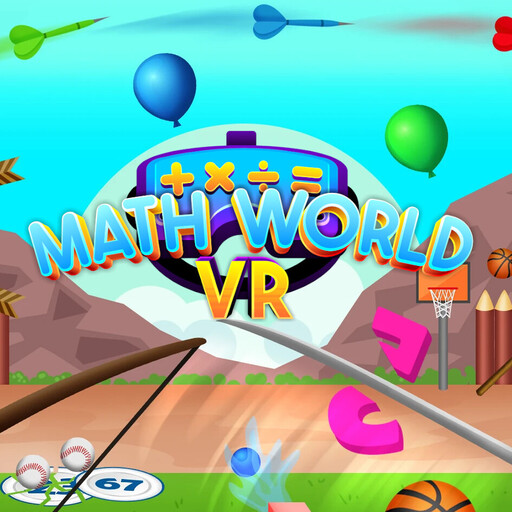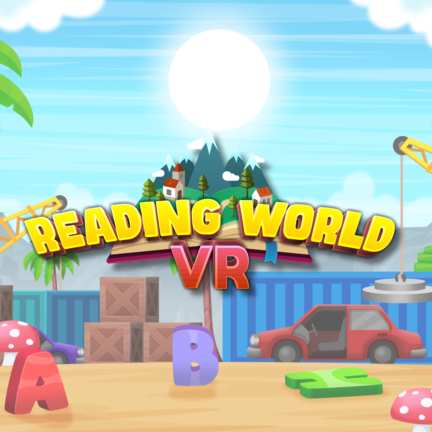The importance of continuous learning cannot be overstated, especially for adults who seek to enhance their skills and knowledge in various domains. Educational games for adult learners represent a transformative approach to learning, blending the engagement of gaming with the rigor of educational content. This blog post delves into the world of educational games tailored for adults, exploring their benefits, challenges, and the future of adult learning through gamification.
The Appeal of Educational Games for Adults
Educational games are not just for children. Adults can greatly benefit from game-based learning, which offers a refreshing break from traditional learning methods. These games cater to a wide range of interests, from language learning and professional development to financial literacy and health education. They provide an interactive and engaging way to acquire new knowledge or brush up on existing skills.
Why Adults Love Learning Through Games
Adult learners appreciate educational games for several reasons. Firstly, games introduce an element of fun to learning, making it less of a chore and more of an enjoyable activity. Secondly, the interactive nature of games enhances retention and comprehension. Lastly, games offer immediate feedback, allowing learners to understand their progress and areas needing improvement.
Key Features of Effective Educational Games for Adults
Effective educational games for adults share certain features. They are challenging yet achievable, ensuring learners feel a sense of accomplishment. These games also offer practical, real-world applications, making the learning experience relevant. Additionally, they support self-paced learning, accommodating the busy schedules of adult learners.
Educational Games Help Can Keep The Mind Sharp For Adults
In an era where lifelong learning is not just a buzzword but a necessity, educational games emerge as a powerful tool for adults seeking to keep their minds sharp. Beyond their role in professional development or acquiring new skills, educational games offer significant cognitive benefits, enhancing memory, problem-solving abilities, and critical thinking. Let’s delve into how these interactive learning tools contribute to mental acuity and overall brain health.
Cognitive Flexibility and Problem-Solving
For adults, engaging with educational games can mean constantly being challenged to apply logic, reason through problems, and devise strategies under varying conditions. This process not only hones problem-solving skills but also improves cognitive flexibility, allowing the brain to better handle multitasking and switch between tasks with ease.
Memory Enhancement
Many educational games are designed to enhance memory through repetition, pattern recognition, and the recall of information. By regularly engaging with these games, adults can improve both short-term and long-term memory. Games that involve complex narratives or require players to remember and apply learned concepts reinforce memory pathways, making it easier to retain and recall information over time.
Attention and Concentration
The interactive and often immersive nature of educational games requires focused attention and concentration. For adults, this can translate into improved attention span and concentration levels, not just while playing the games but in other areas of life as well. By engaging with games that demand attention to detail and sustained focus, adults can train their brains to become more attentive and less prone to distractions.
Speed of Processing
Educational games that challenge adults to think and respond quickly can improve the brain’s processing speed. This is particularly beneficial for adults as processing speed tends to decline with age. Regularly playing these games can help maintain and even improve the ability to quickly interpret and respond to information, a skill that is valuable in both personal and professional contexts.

Educational Games in Professional Development
Professional development is a critical area where educational games can make a significant impact. These games offer a practical and effective way to acquire new skills, stay updated with industry trends, and improve job performance. Let’s delve deeper into how educational games are revolutionizing professional development for adult learners.
Enhancing Soft Skills
Soft skills such as communication, leadership, and teamwork are increasingly recognized as essential components of professional success. Educational games focusing on these soft skills are particularly beneficial for adult learners. By simulating real-life scenarios, these games allow learners to practice and develop these skills in a safe and controlled environment. For instance, a game designed to improve communication skills might place the player in various professional scenarios requiring negotiation, persuasion, or conflict resolution. This hands-on approach not only reinforces theoretical knowledge but also boosts confidence in applying these skills in the workplace.
Moreover, leadership and teamwork games often require players to make decisions that affect the game’s outcome, mirroring the impact of such decisions in real-life work settings. These games can foster a deeper understanding of team dynamics, leadership styles, and the importance of collaboration and effective communication.
Technical Skills and Industry Knowledge
Staying abreast of technological advancements and industry-specific knowledge is paramount. Games designed to enhance technical skills and industry knowledge can help adults stay competitive in their fields. Whether it’s coding, digital marketing, or project management, educational games provide an interactive way to master complex concepts and apply them in professional settings.
For example, coding games can introduce programming concepts in an engaging and accessible manner, gradually increasing in complexity as the player progresses. This gamified learning approach demystifies coding for beginners and can enhance the skills of more experienced programmers by offering challenges that require the application of advanced concepts.
Digital marketing games might simulate the experience of running a marketing campaign, allowing players to experiment with different strategies, analyze data, and see the real-time impact of their decisions. This practical experience is invaluable for understanding the nuances of digital marketing in a risk-free environment.
Project management games, on the other hand, can simulate the challenges of managing a project from inception to completion. Players learn to allocate resources effectively, manage time, and navigate the complexities of team coordination, all while striving to meet project goals within constraints.
Bridging the Gap with Educational Games
The gamification of professional development bridges the gap between theoretical knowledge and practical application. By incorporating elements of game design into learning activities, educational games make the acquisition of new skills engaging, motivating, and effective. Leaderboards, points, badges, and levels add an element of competition and progress tracking, which can significantly enhance learner engagement and motivation.
Furthermore, the immediate feedback provided in educational games allows adults to understand their mistakes and learn from them in real time. This feedback loop is crucial for effective learning, as it enables learners to adjust their strategies and approaches on the fly, fostering a deeper understanding of the subject matter.
Challenges and Solutions in Adult Learning Games
While educational games offer numerous benefits, they also face challenges in effectively engaging adult learners. These challenges include ensuring the relevance of content, maintaining motivation, and addressing varying skill levels.
Keeping Content Relevant and Up-to-Date
One of the main challenges is keeping the game content relevant and up-to-date with industry standards and practices. Developers must continuously update games to reflect the latest trends and information.
Motivating Adult Learners
Maintaining motivation among adult learners can be challenging, especially for those balancing work, family, and education. Personalized learning paths, rewards, and recognition can help sustain interest and motivation.
Catering to Different Skill Levels
Adult learners come with diverse backgrounds and skill levels. Educational games need to offer adjustable difficulty levels and personalized learning experiences to accommodate this diversity.

The Future of Educational Gaming for Adults
The future of educational gaming for adults looks promising, with advancements in technology paving the way for more immersive and personalized learning experiences. VR and augmented reality (AR) are set to revolutionize educational gaming, offering realistic simulations and interactive learning environments.
Immersive Learning Through VR
Virtual Reality (VR) technology is at the forefront of creating immersive learning experiences. By simulating real-world environments, VR provides adult learners with hands-on experience in a variety of fields without the associated real-world risks or costs. For instance, medical students can perform virtual surgeries, offering a level of depth and realism that textbooks or traditional learning modules cannot match. Engineering students can walk through and interact with their 3D project designs, identifying potential issues and experimenting with solutions in a virtual space.
The immersive nature of VR also holds significant potential for soft skill development. Through realistic simulations, learners can practice public speaking, negotiation, or conflict resolution in a variety of simulated social settings, receiving immediate feedback on their performance. This safe, controlled environment for practice and repetition is invaluable for adult learners looking to enhance their professional skill set.
Augmented Reality: Blending the Real and Virtual
Augmented Reality (AR) takes a slightly different approach by overlaying digital information onto the real world, enhancing the learning experience with interactive elements. For adult education, this means turning the environment around the learner into a dynamic learning space. Imagine pointing a smartphone at a mechanical device and seeing it disassemble, with each part labeled and its function explained. Or, consider the benefits for historical education, where visiting an historical site could bring to life the events that occurred there through AR simulations.
AR’s potential to blend practical, hands-on experience with rich, contextual information makes it a powerful tool for adult learners. It bridges the gap between theory and practice, providing a deeper understanding of complex subjects in fields such as history, engineering, and science.
Personalization and Adaptive Learning
Advancements in AI and machine learning are making it possible to create personalized learning experiences. Educational games of the future will adapt to the learner’s progress, offering challenges that are just right for their skill level, thus optimizing the learning curve.
The Role of Gamification in Future Learning
Beyond VR and AR, the future of educational gaming for adults will continue to embrace gamification techniques to enhance motivation and engagement. Gamification elements like points, badges, leaderboards, and achievements can transform learning into a more game-like and enjoyable experience. These elements tap into the intrinsic motivations of learners, encouraging them to set goals, pursue challenges, and track their progress in a visually rewarding way.
Conclusion
Educational games for adult learners offer a compelling blend of entertainment and education, making learning an engaging and enjoyable pursuit. As technology continues to evolve, so too will the possibilities for educational gaming, opening new horizons for adult education. By embracing these opportunities, adult learners can enhance their skills, knowledge, and personal development in ways that were once unimaginable.








